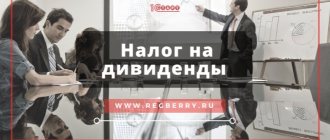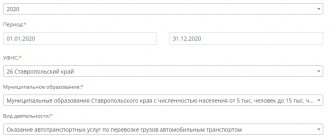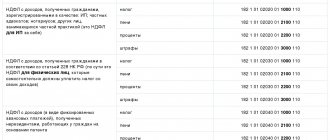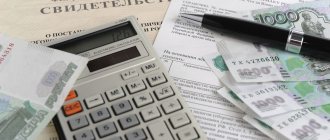In this article we will rely on the tax code of the Russian Federation, the chapter of personal income tax. Personal income tax payers are individuals. faces, i.e. our employees: residents (stay in the Russian Federation more than 183 days a year) and non-residents. The object of taxation is only those incomes that were received from sources in the Russian Federation.
Definition of 12 month period.
To calculate personal income tax, it is necessary to determine the status of the employee - whether he is a resident or not. To do this, we find out from the foreigner how many days he has lived in Russia over the past year. It is not necessary to count from January and from the beginning of the month. A billing period of 12 months can begin, for example, December 25, 2021. and ends on December 24, 2021. The main thing is that during this interval the worker has lived in the country for 183 calendar days or more.
The period of 183 days is determined by summing up all calendar days in which individuals. the person was in Russia, and days of traveling abroad for short-term treatment and training for 12 consecutive months. Moreover, the days required to determine residence do not have to be consecutive; they can be interrupted, for example, during a vacation or business trip. Let's look at an example:
Thus, for 12 consecutive months from October 21, 2013. to October 20, 2014 our employee was in the Russian Federation for more than 183 days. This means that as of October 21, 2014. (on the day of payment of income) he is recognized as a tax resident of the Russian Federation , i.e. his income is taxed at a rate of 13%.
How to confirm your resident status?
- Access control marks in the passport,
- employment contract,
- certificate from the place of work,
- certificate from the educational institution,
- time sheet.
A foreigner can provide these documents at his own request if he wants 13% personal income tax to be withheld from him. Initially, the employer does not require them.
Procedure for taxation of personal income tax on payments to foreign employees in 2021
The income of foreign employees working in the Russian Federation, regardless of whether they have the status of a tax resident of the Russian Federation, is subject to personal income tax (clause 1 of Article 207 of the Tax Code of the Russian Federation, Letter of the Ministry of Finance dated 05/07/2018 No. 03-01-11/30449).
Income tax rates differ for residents and non-residents (clause 1, clause 3 of Article 224 of the Tax Code of the Russian Federation):
For certain categories of foreigners from the “exclusive” list, the possibility of applying a personal income tax of 13% is associated with additional relaxations or restrictions. For example, foreigners who are citizens of the EAEU do not need to confirm their employee status from the tax authority, and foreigners who are highly qualified specialists have the right to apply a personal income tax rate of 13% only to certain types of income. We will tell you the details below.
Features of personal income tax payment for non-residents
When calculating contributions, persons are not divided into residents and non-residents. Contributions are also calculated on the earnings of employees who are in the country on a temporary basis. However, standard payments should not be made by persons classified as highly qualified specialists. The contribution rate for them will be 1.8%.
If a person has non-resident status, tax deductions in relation to him are not accepted. This limitation is established by Article 210 of the Tax Code of the Russian Federation, paragraph 1 of Article 220 and paragraph 3 of Article 224 of the Tax Code of the Russian Federation. In addition, non-residents cannot use the method of reducing the income received from the sale of property by the purchase price of this property. These persons are not entitled to the benefits established by subparagraph 2 of paragraph 1 of Article 220 of the Tax Code of the Russian Federation. That is, they cannot deduct expenses from income. This restriction was established in a number of letters from the Ministry of Finance. This is explained by the fact that a decrease in income for expenses is, in fact, a tax deduction, and it is not available to non-residents.
We recommend reading: Is it possible to drive in a Swallow in seats for disabled people?
Personal income tax on the income of a foreigner from the EAEU
If you involve foreigners from EAEU member countries (Belarusians, Kazakhs, Kyrgyz, Armenians) in your work, then consider the following rules:
- From the first day of their work on the territory of the Russian Federation, the income of such citizens is taxed at a personal income tax rate of 13% (Article 73 of the Treaty on the Eurasian Economic Union of May 29, 2014, clause 1 of Article 224 of the Tax Code of the Russian Federation).
- At the end of the year, the final tax status of an individual is determined depending on the time of his stay in the Russian Federation (Resolution of the Constitutional Court of the Russian Federation dated June 25, 2015 No. 16-P).
As for the standard deductions used when calculating personal income tax, foreign employees from the EAEU have the right to use them only after acquiring the status of a tax resident of the Russian Federation (Letter of the Ministry of Finance dated June 15, 2018 No. 03-04-05/40970).
The Ministry of Finance believes that if at the end of the year a foreigner from the EAEU has not acquired the status of a tax resident of the Russian Federation, then the personal income tax on his income from employment for the entire period from the beginning of the year should be recalculated at a rate of 30% (Letter of the Ministry of Finance dated February 18, 2020 No. 03-04 -07/11392). Tax officials do not agree with this ─ The Federal Tax Service sees no reason to recalculate the tax at the end of the year if the status of a citizen from the EAEU has changed (Letter of the Federal Tax Service dated November 28, 2016 No. BS-4-11 / [email protected] ).
The Ministry of Finance in Letter No. 03-04-06/74275 dated August 25, 2020 also clarified that after the dismissal of a foreign employee from the EAEU, there is no need to recalculate personal income tax withheld at a rate of 13% if no payments are made to him after the date of dismissal.
Foreigners who are citizens of the EAEU may not receive confirmation of their tax status from tax authorities. The employer himself will determine it on the basis of a copy of the pages of the passport with marks from the border control authorities about crossing the border (Letter of the Federal Tax Service dated June 10, 2015 No. OA-3-17 / [email protected] ).
Changing the tax status of an individual
If an employee travels outside of Russia, he may lose his status as a tax resident of the Russian Federation. Tax residency in the Russian Federation is not interrupted if an individual travels outside the Russian Federation for no more than six months for treatment or training (clause 2 of Article 207 of the Tax Code of the Russian Federation). It is not interrupted in a number of other cases listed in the Tax Code of the Russian Federation. For example, when traveling outside the territory of the Russian Federation to perform labor or other duties related to the performance of work (provision of services) in offshore hydrocarbon fields.
On the other hand, any non-resident (including a highly qualified foreign specialist; a crew member of a ship registered in the Russian International Register of Ships; a participant in the program for the resettlement of compatriots; a refugee or someone who has received temporary asylum on the territory of the Russian Federation; a citizen of a country party to the Treaty on the EAEU; a non-resident, employed on the basis of a patent), having lived in the Russian Federation for 183 days over the past 12 months, becomes a tax resident.
When determining the tax status of an individual, it is necessary to take into account the 12-month period determined on the date of receipt of income, including those that began in one tax period (calendar year) and continued in another tax period (calendar year) (letter of the Ministry of Finance of Russia dated April 26, 2012 No. 03-04-06/6-123). During the year, tax agents (employers) calculate the taxpayer's status on the date of actual receipt of income in accordance with the provisions of Article 223 of the Tax Code of the Russian Federation (letter of the Federal Tax Service of Russia dated August 30, 2012 No. OA-3-13 / [email protected] ).
The status of a resident of the Russian Federation acquired by an individual cannot change in a calendar year, provided that the person has been in Russia for more than 183 days this year. So, July 3 in a non-leap year is the 184th day of the year.
Thus, if as of July 3, 2018, an employee has not left Russia during the year, then his tax status for the current year—a resident of the Russian Federation—is already guaranteed. If an employee acquires the status of a resident of the Russian Federation, which cannot change in the current year, then the tax agent can independently recalculate the tax at a rate of 13% instead of 30%, guided by paragraph 3 of Article 226 of the Tax Code of the Russian Federation.
Starting from the month in which the taxpayer’s status changed, previously withheld personal income tax at a rate of 30% is counted towards payment of tax at a rate of 13%.
If at the end of the year (tax period) there is uncredited tax, then its refund is carried out by the tax authority at the place of residence (registration) of the individual (clause 1.1 of Article 231 of the Tax Code of the Russian Federation). To do this, the taxpayer must submit a tax return, as well as documents confirming his status as a tax resident of the Russian Federation (letters of the Ministry of Finance of Russia dated February 27, 2018 No. 03-04-06/12086, dated September 26, 2017 No. 03-04-06/62127, No. 03 -04-06/62126, dated 02/15/2016 No. 03-04-06/7958, dated 04/15/2014 No. 03-04-06/17166, dated 10/03/2013 No. 03-04-05/41061, dated 11/15/2012 No. 03-04-05/6-1301, dated 04/16/2012 No. 03-04-06/6-113, Federal Tax Service of Russia dated 06/09/2011 No. ED-4-3/9150, dated 09/05/2011 No. ED-2- 3/ [email protected] ).
This approach is also valid when during the tax period an employee was transferred from the parent organization to a separate division (letter of the Ministry of Finance of Russia dated December 23, 2014 No. 03-04-06/66648).
If the tax status of an individual who is the recipient of income can be determined only at the end of the calendar year, then the recalculation of personal income tax in connection with the acquisition of the status of a resident of the Russian Federation and its return are carried out by the tax authority at the place of registration (stay) of the individual in accordance with paragraph 1.1 of Article 231 of the Tax Code of the Russian Federation.
To do this, the taxpayer must submit to the tax authority a declaration in form 3-NDFL, as well as documents confirming the status of a resident of the Russian Federation in this tax period (see letters of the Ministry of Finance of Russia dated January 16, 2013 No. 03-04-06/4-11, dated 09.08 .2012 No. 03-04-06/6-230, dated 09.21.2011 No. 03-04-06/6-226, Federal Tax Service of Russia dated 10.22.2012 No. AS-3-3/ [email protected] , dated 08.14.2012 No. ED-3-3/ [email protected] , dated March 21, 2012 No. ED-3-3/ [email protected] ).
| 1C:ITS For more information on how personal income tax is recalculated if the status of an individual changes from non-resident to resident during a calendar year, see the “Individual Income Tax” reference book. |
Personal income tax on the income of foreigners working under a patent
The employer is obliged to calculate personal income tax in relation to all income of a foreigner, the source of which he is (clause 2 of article 226 of the Tax Code of the Russian Federation).
The personal income tax rate and the procedure for calculating tax on the income of foreigners working in the Russian Federation under a patent are determined according to the norms of clause 2 of Art. 210, paragraph 1 and paragraph 3 of Art. 224 of the Tax Code of the Russian Federation, taking into account clarifications from the Letter of the Ministry of Finance dated June 13, 2017 No. 03-04-05/36673.
Expanded capabilities of “1C: Salaries and personnel management 8 KORP” for personal income tax accounting
Accounting for personal income tax rates under international agreements
The CORP version of the 1C: Salary and Personnel Management 8 program, edition 3, provides expanded capabilities for personal income tax accounting. In accordance with international treaties of the Russian Federation, in order to avoid double taxation, the program can register the income of non-residents of the Russian Federation in the form of dividends, income on securities, royalties and calculate personal income tax at the specified rates of 3, 5, 6, 7, 10, 12, 15%.
A number of international treaties provide for a fractional tax rate (4.5%, 7.5%, 13.5%). However, the current electronic formats of 2-NDFL and 6-NDFL reports do not provide for the possibility of transmitting such data. Therefore, the program does not support these bets.
You can enable the functionality of using taxation in accordance with international treaties in the Settings menu - Payroll calculation - flag Use personal income tax rates provided for by international treaties of the Russian Federation.
At the same time, in the Dividends document it becomes possible to choose the personal income tax rate under an international agreement: 5, 10 or 12%. In the Author's Order Agreement document, you can similarly select the tax rate from the options 3, 5, 6, 7, 10, 15%. Personal income tax is calculated automatically at the specified rate.
New rates can also be specified in the Personal Income Tax Accounting Transaction document. Reports 2-NDFL and 6-NDFL correctly reflect the specified personal income tax rates and are automatically filled in using the data registered in the program.
Personal income tax on the income of foreigners who are highly paid specialists
According to the norms of Russian legislation, a highly qualified specialist is a foreign citizen who has work experience, skills or achievements in a specific field of activity, if, under the terms of an employment contract concluded with him in the Russian Federation, he receives a salary in the amount not lower than specified in paragraph 1 of Art. 13.2 of the Law of July 25, 2002 No. 115-FZ “On the legal status of foreign citizens in the Russian Federation.”
The personal income tax rate of 13% applies to the income of foreigners-high-qualifiers, regardless of the presence or absence of tax resident status (clause 3 of article 224 of the Tax Code of the Russian Federation). This rule does not apply to any income received by such an employee in the Russian Federation, but only to wages (remuneration) paid by the employer or customer of work or services (Letter of the Ministry of Finance dated January 24, 2018 No. 03-04-05/3543).
If a foreigner-HQS who has not received the status of a tax resident of the Russian Federation receives income not related to wages, personal income tax is withheld from him at a rate of 30% (Letter of the Ministry of Finance dated August 7, 2018 No. 03-04-06/55674).
An employer who does not comply with the minimum salary level of a foreign HQS should take into account that the personal income tax for the months in which the HQS received such a salary must be withheld at a rate of 30% ─ the preferential rate of 13% cannot be used, since an employee with such a salary cannot be recognized as a HQS ( subparagraph 3, paragraph 1, article 13.2 of Law No. 115-FZ, paragraph 3, article 224 of the Tax Code of the Russian Federation).
Personal income tax of a highly qualified specialist: personal income tax VKS 2021
The personal income tax rate in 2021 on income from the labor of highly qualified specialists is always thirteen percent (tax status is not important).
It applies, for example, to wages, allowances for work away from permanent residence, and remuneration to members of the board of directors. A rate of 13 percent is applied to payments accrued during the validity of an employment contract or a civil contract for the implementation of work (provision of services).
Everything that was accrued after completion of the contract is subject to personal income tax at a rate of 30 or 13 percent, based on the tax status. The personal income tax rate in 2021 for income that does not affect work activity for a highly qualified non-resident specialist is 30 percent.
It is applicable in the case of payment of financial assistance, compensation for food costs, and giving gifts.
We draw your attention to the fact that the average salary retained by an employee during vacation (vacation pay) is not included in the category of income from work. Vacation is a period of rest during which a person is relieved from performing his work duties. Consequently, personal income tax should be collected at a rate of 30 percent on vacation funds for a highly qualified non-resident specialist.
Personal income tax on payments to a foreigner under a GPC agreement
The customer does not need to calculate and withhold personal income tax on payments to a foreigner if the contractor is an individual entrepreneur or self-employed. For self-employed people, such exemption of the customer from calculating and withholding tax on amounts paid to a foreigner is possible in the absence of an employment relationship with the contractor for at least 2 years (subclause 1, clause 1, clause 2, article 227 of the Tax Code of the Russian Federation, part 8, article 2 , clause 8, part 2, article 6 of the Law of November 27, 2018 No. 422-F “On conducting an experiment...”).
If a foreigner is not an individual entrepreneur or self-employed, the calculation and payment of personal income tax under a civil process agreement for the performance of work (provision of services) with him must be made from each payment of income, including advances (clause 1, clause 2 of Article 226 of the Tax Code of the Russian Federation, clause 2 Letters of the Ministry of Finance dated June 23, 2020 No. 03-04-05/54027).
Personal income tax rates and the right to deductions:
- The tax is calculated at a rate of 13% on the income of a foreigner recognized as a tax resident of the Russian Federation on the date of payment of income (clause 1 of Article 224 of the Tax Code of the Russian Federation). It is possible to reduce taxable income by standard and professional deductions at the request of the contractor (clause 1, clause 3 of Article 218, clause 2, clause 3 of Article 221 of the Tax Code of the Russian Federation).
- The tax is calculated at a rate of 30% if a foreigner does not have tax resident status (clause 3 of Article 224 of the Tax Code of the Russian Federation). Deductions are not applied (clause 3, clause 4 of Article 210 of the Tax Code of the Russian Federation).
Insurance premiums and taxes for non-residents (2020)
For compulsory pension insurance of foreign workers of all listed statuses (except for highly qualified specialists), contributions are accrued from payments not exceeding RUB 81,021,000. at a rate of 22%, and from the excess amount - at a rate of 10%. Contributions to compulsory pension provision for highly qualified specialists are not accrued (including for bonuses paid to such employees after their dismissal).
Contributions from payments not exceeding RUB 815,000. are accrued at a rate of 2.9% to foreigners of all statuses, except those temporarily staying in the Russian Federation. For payments to foreigners temporarily staying in Russia, contributions for temporary disability are calculated at a rate of 1.8%, and for payments in favor of temporarily staying highly qualified specialists, insurance premiums are not calculated.
How to pay personal income tax if a foreign worker works remotely
It can be beneficial for an employer to attract foreign citizens to remote work, especially from countries ─ republics of the former Soviet Union. In this case, remuneration for the performance of work for a Russian company by a foreign employee from another state refers to income received from sources outside the Russian Federation (subclause 6, clause 3, article 208 of the Tax Code of the Russian Federation).
If a remote foreign worker is not a tax resident of the Russian Federation, the employer does not need to withhold personal income tax from such payments (clause 1 of Article 207 of the Tax Code of the Russian Federation, Letter of the Ministry of Finance dated August 26, 2019 No. 03-04-05/65456).
Please note that it is safer to enter into a GPC agreement with a foreigner working remotely. The Ministry of Labor, for a number of reasons, opposes the conclusion of an employment contract in such a situation (Letter of the Ministry of Labor dated 08/07/2015 No. 17-3/B-410).
Income tax for foreigners in 6-NDFL
In personal income tax reporting, the employer, as a tax agent, must reflect the income paid to foreign employees and the corresponding tax amounts.
In 2021, such information is reflected in 6-NDFL and the 2-NDFL certificate issued at the end of the year. The procedure for displaying information is usual, but taking into account some features. For example, in the totals of section 3 of the 2-NDFL certificate filled out for non-residents of the Russian Federation, zeros are indicated, since deductions are not provided to them. If a foreigner works under a patent, then the certificate reflects the amount of advance payments made by him, which reduces personal income tax.
Starting from 2021, information from the 2-NDFL certificate is included in the new form 6-NDFL (Order of the Federal Tax Service dated October 15, 2020 No. ED-7-11 / [email protected] ).
Personal income tax on the income of foreigners during the period of coronavirus restrictions
Due to the worsening situation with coronavirus, legislators had to temporarily change certain rules for regulating the legal status of foreigners in the Russian Federation (Decree of the President of the Russian Federation dated April 18, 2020 No. 274). These temporary rules should be taken into account by employers who employ foreign employees.
Letters from the Ministry of Finance will help you understand the peculiarities of personal income tax assessment of the income of foreign employees during the period of coronavirus restrictions:
| Letter details | Category of foreign workers | How to tax personal income tax on the income of foreigners |
| Letter of the Ministry of Finance dated April 30, 2020 No. 03-04-09/35512 | Foreign citizens who do not have patents and are not recognized as tax residents of the Russian Federation | Income is taxed at a personal income tax rate of 30%. Norms Art. 227.1 and para. 3 p. 3 art. 224 of the Tax Code of the Russian Federation do not apply |
| Letter of the Ministry of Finance dated July 30, 2020 No. 03-04-09/66816 | Foreign citizens with patents that expire during the spread of coronavirus | Taxation according to Art. 227.1 of the Tax Code of the Russian Federation ─ with a decrease in personal income tax by the amount of fixed payments paid |
Is it possible to reduce income?
Is it possible to reduce income in order to reduce taxation? There is no clear judicial practice on this matter. However, some experts argue in favor of the possibility of reducing the volume. In particular, paragraph 4 of Article 210 states that the deductions established by Articles 218-221 of the Tax Code of the Russian Federation are not relevant for non-residents. At the same time, this does not indicate that the base cannot be reduced by the amount of spending. That is, there are no direct prohibitions in the Tax Code of the Russian Federation. The deduction of expenses from income is not called a tax deduction, and therefore there cannot be unambiguous restrictions here.
FOR YOUR INFORMATION! Even if a person is convinced that he can reduce the amount of income, he should not do this without prior approval from the tax office. Consent must be obtained before submitting the declaration.
Personal income tax fines for foreign employees
In relation to payments to its employees (including foreign ones), the employer is obliged to perform the functions of a tax agent and is responsible for violations in their performance.
He will be punished with a fine of 20% of the amount of personal income tax that he did not withhold and/or did not transfer to the budget within the prescribed period (Clause 1 of Article 123 of the Tax Code of the Russian Federation). If the tax base is deliberately understated, the fine doubles (Clause 3, Article 122 of the Tax Code of the Russian Federation).
In addition to the fine, tax authorities will charge penalties (clause 1 of Article 75 of the Tax Code of the Russian Federation, clause 2 of the Resolution of the Plenum of the Supreme Arbitration Court of the Russian Federation dated July 30, 2013 No. 57).
Useful information from ConsultantPlus
In the materials of the Consultant Plus help system you will find detailed additional explanations about possible fines for personal income tax, calculation of penalties, as well as tips on exemption from penalties for this tax.
Let's sum it up
- The personal income tax rate of 13% applies to the income of foreign citizens who have the status of tax resident of the Russian Federation and to the income of certain categories of foreigners, regardless of tax status: foreigners working under a patent, highly qualified specialists, citizens from the EAEU countries, etc.
- Personal income tax on the income of foreign workers who are not tax residents of the Russian Federation, that is, actually staying in Russia for less than 183 calendar days over the next 12 consecutive months, is calculated at a rate of 30%.
- The employer is required to reflect the income received by foreigners and the income tax calculated on it in tax reporting.
- Due to the worsening situation with coronavirus in 2021, employers hiring foreign citizens should take into account temporary adjustments made to regulatory documents.
Change of tax status in “1C: Salary and Personnel Management 8” (rev. 3)
A change in the tax status of an employee upon the occurrence of this fact should be reflected in the employee’s card using the Income Tax link, indicating in the Established from field the date of the tax period from which the status changes. Personal income tax recalculation occurs automatically.
Example 2
| Since 02/01/2018, employee S.S. Gorbunkov, who has the status of “Highly Qualified Foreign Specialist” and works under an employment contract (see Example 1), became a resident. |
In this case, personal income tax is automatically recalculated for other income (Fig. 4). Personal income tax, excessively accrued on income in kind, is displayed in the document Payroll for February 2018 in the amount of 17,364 rubles. Deductions for children have been applied since January 2018.
Rice. 4. Recalculation of personal income tax in the document “Payroll”
Please note that automatic recalculation of personal income tax on dividends is not provided in the program. Users can independently enter the Personal Income Tax Recalculation document in the Taxes and Contributions section. By clicking the Fill button, personal income tax is recalculated automatically (Fig. 5).
Rice. 5. Document “Recalculation of personal income tax”







